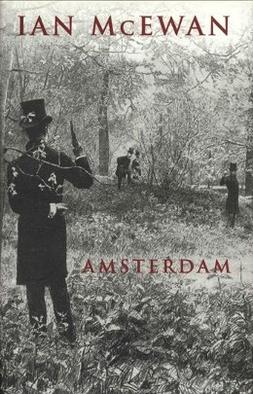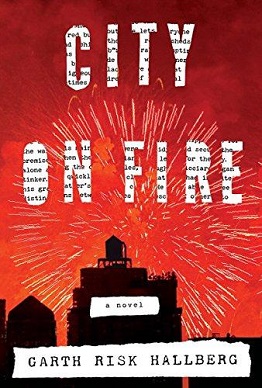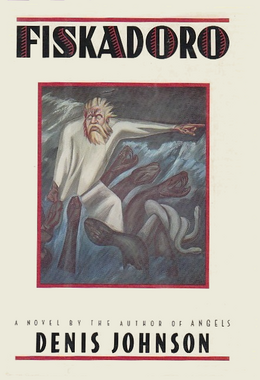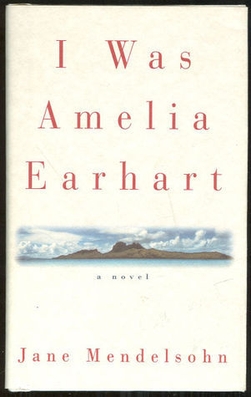
Buchi Emecheta was a Nigerian writer who wrote novels, plays, autobiography, and children's book. She is known for her first novel, Second Class Citizen (1974). Others includes, The Bride Price (1976), The Slave Girl (1977) and The Joys of Motherhood (1979). Emecheta has been characterized as "the first successful black woman novelist living in Britain after 1948".

Amsterdam is a 1998 novel by British writer Ian McEwan, for which he was awarded the 1998 Booker Prize.

Michiko Kakutani is an American writer and retired literary critic, best known for reviewing books for The New York Times from 1983 to 2017. In that role, she won the Pulitzer Prize for Criticism in 1998.

The Bride Price is a 1976 novel by Nigerian writer Buchi Emecheta. It concerns, in part, the problems of women in post-colonial Nigeria. The author dedicated this novel to her mother, Alice Ogbanje Emecheta.

In the Beauty of the Lilies is a 1996 novel by John Updike. It takes its title from a line of the abolitionist song "The Battle Hymn of the Republic." The novel received the 1997 Ambassador Book Award for Fiction.

Monster: The Autobiography of an L.A. Gang Member is a memoir about gang life written in prison by Sanyika Shakur.

Adam Johnson is an American novelist and short story writer. He won the Pulitzer Prize for his 2012 novel, The Orphan Master's Son, and the National Book Award for his 2015 story collection Fortune Smiles. He is also a professor of English at Stanford University with a focus on creative writing.

CivilWarLand in Bad Decline is a book of short stories and a novella by the American writer George Saunders. Published in 1996, it was Saunders's first book. Many of the stories initially appeared in different forms in various magazines, including Kenyon Review, Harper's, The New Yorker and Quarterly West. The collection was listed as a Notable Book of 1996 by The New York Times, as well as a finalist for the 1996 PEN/Hemingway Award.

The Round House is a novel by the American writer Louise Erdrich first published on October 2, 2012 by HarperCollins. The Round House is Erdrich's 14th novel and is part of her "justice trilogy" of novels, which includes The Plague of Doves released in 2008 and LaRose in 2016. The Round House follows the story of Joe Coutts, a 13-year-old boy who is frustrated with the poor investigation into his mother's gruesome attack and sets out to find his mother's attacker with the help of his best friends, Cappy, Angus, and Zack. Like most of Erdrich's other works, The Round House is set on an Ojibwe reservation in North Dakota.

City on Fire is a 2015 novel by Garth Risk Hallberg, published by Alfred A. Knopf. The novel takes place in New York City in the 1970s. It is Hallberg's first published novel. Hallberg received an advance of $2 million for the novel, which was rumored at the time to be the highest ever for a debut novel. However, other debut novels acquired around the same time also received seven-figure advances.
None to Accompany Me is a 1994 novel by South African Nobel Winner Nadine Gordimer. The novel follows the motifs and plot framework of a Bildungsroman, exploring the development of the main character, Vera Stark. The novel is set during the early 1990s in South Africa after the release of Nelson Mandela.

Victor Ehikhamenor is a Nigerian visual artist, writer, and photographer known for his expansive works that engage with multinational cultural heritage and postcolonial socioeconomics of contemporary black lives. In 2017, he was selected to represent Nigeria at the Venice Biennale, the first time Nigeria would be represented in the event. His work has been described as representing "a symbol of resistance" to colonialism.

Second Class Citizen is a 1974 novel by Nigerian writer Buchi Emecheta. It was published in London by Allison and Busby and subsequently in US in 1975 by George Braziller. Often described as a semi-autibiography, it entails the story of Adah, the major book character, Nigerian woman who overcomes strict tribal domination of women and countless setbacks to achieve an independent life for herself and her children. She moved from Nigeria to London, where she faced hard living conditions and a violent marriage to Francis. The novel explores the themes of gender and marriage, religion and immigration.

Fiskadoro is post-apocalyptic novel by Denis Johnson published in 1985 by Alfred A. Knopf.

Leonardo and the Last Supper, is a 2011 book written by Ross King, a Canadian novelist and non-fiction writer. He was awarded Canada's 2012 Governor General's Award for English-language non-fiction for Leonardo and the Last Supper, his examination of da Vinci's iconic 15th century religious mural.

I Was Amelia Earhart is Jane Mendelsohn's debut novel, published by Knopf in 1996. It tells a fictional account of what happened to Amelia Earhart and her navigator, Fred Noonan, after they disappeared off the coast of New Guinea in 1937. The book was shortlisted for the 1997 Orange Prize for Fiction and appeared on the New York Times Best Seller list for fourteen weeks.
Africanfuturism is a cultural aesthetic and philosophy of science that centers on the fusion of African culture, history, mythology, point of view, with technology based in Africa and not limiting to the diaspora. It was coined by Nigerian American writer Nnedi Okorafor in 2019 in a blog post as a single word. Nnedi Okorafor defines Africanfuturism as a sub-category of science fiction that is "directly rooted in African culture, history, mythology and point-of-view..and...does not privilege or center the West," is centered with optimistic "visions in the future," and is written by "people of African descent" while rooted in the African continent. As such its center is African, often does extend upon the continent of Africa, and includes the Black diaspora, including fantasy that is set in the future, making a narrative "more science fiction than fantasy" and typically has mystical elements. It is different from Afrofuturism, which focuses mainly on the African diaspora, particularly the United States. Works of Africanfuturism include science fiction, fantasy, alternate history, horror and magic realism.

Head above Water is a 1986 non-fiction book by Nigerian novelist Buchi Emecheta. It was published in 1986 in the African Writers Series by Heinemann and has been described as "anecdotal autobiography."

Double Yoke is a 1982 novel written by Nigerian writer Buchi Emecheta. It was published in the United States on 2 September 1982, by George Braziller.

In the Ditch is a 1972 novel written by Nigerian writer Buchi Emecheta. It was first published on New Statesman as a regular column then published in 1972 by Allison & Busby in London, where her editor was Margaret Busby.

















